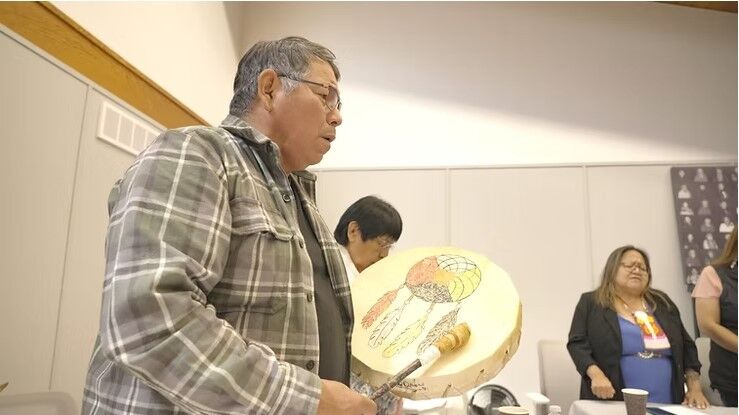A tense confrontation unfolded at School District 27’s board meeting last week as Esk’etemc First Nation representatives raised serious concerns about the district’s communication practices and transparency in educational decision-making affecting their community.
Chief Fred Robbins led the Esk’etemc delegation, accompanied by Councillor Irvine Johnson and Education Manager Jolene Alec, as they addressed the board with mounting frustrations over what they described as systemic communication failures between the district and Indigenous communities.
“The district has repeatedly made decisions affecting our children without proper consultation,” Chief Robbins stated firmly during his presentation. “Our community deserves timely information and meaningful involvement in matters directly impacting our students’ educational journey.”
The delegation highlighted specific grievances including limited notification of important meetings, inadequate response to community concerns, and decisions made without appropriate Indigenous representation or input. These issues have created a growing divide between the First Nation and school authorities that both sides acknowledge must be addressed.
Superintendent Chris van der Mark responded to the concerns by acknowledging communication challenges while emphasizing the district’s commitment to improving relationships with Indigenous partners. “We recognize there have been gaps in our communication processes, and we’re committed to working collaboratively to establish better protocols moving forward,” van der Mark noted.
School Board Chair Ciel Patenaude echoed this sentiment, adding that the board plans to review its Indigenous engagement policies and develop new strategies for more effective consultation with First Nations communities.
The confrontation comes amid growing national attention to Indigenous educational sovereignty and the implementation of Truth and Reconciliation Commission recommendations in school systems across Canada. Educational experts note that meaningful Indigenous participation in school governance represents a crucial element in addressing historical inequities in the education system.
Following the meeting, both parties agreed to establish a working group focused on developing clearer communication protocols and ensuring Indigenous perspectives are incorporated into educational planning and decision-making processes.
The Esk’etemc delegation made it clear that this issue extends beyond procedural concerns to fundamental questions about respect and recognition of Indigenous rights in educational contexts. “This isn’t just about better emails or more meetings,” Councillor Johnson emphasized. “It’s about acknowledging our rightful place in determining how our children are educated.”
As this situation continues to develop, the broader question remains: will this confrontation serve as a catalyst for meaningful change in how school districts engage with Indigenous communities, or will it become another chapter in the long history of unresolved tensions in our educational institutions?










